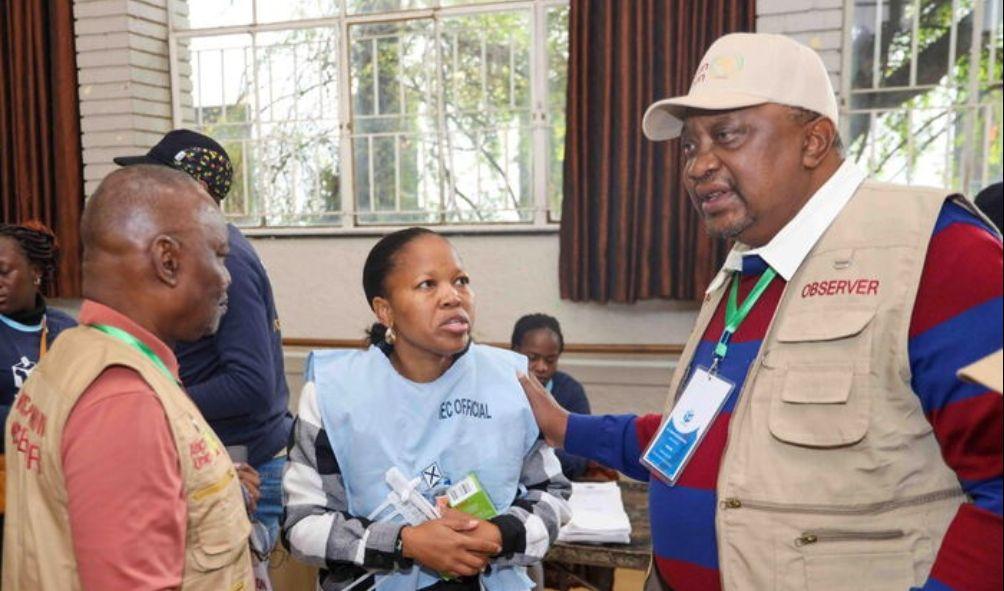Uhuru’s Benefits as Observer Leader in South Africa’s Elections
Upon his arrival in South Africa on Sunday, Former President Uhuru Kenyatta took the lead of the African Union Election Observation Mission (AUEOM) as the nation prepares to elect new leaders on May 29, 2024.
In the upcoming presidential election, incumbent President Cyril Ramaphosa from the African National Congress (ANC) aims to win a second term. He will be competing against Julius Malema from the Economic Freedom Fighters (EFF), John Steenhuisen from the Democratic Alliance (DA), and Jacob Zuma from uMkhonto we Sizwe (MK).
As an election observer, Uhuru’s responsibility is to ensure the transparency and integrity of South Africa’s general elections.
Uhuru is heading a team of 65 election observers from 26 African nations, which includes members from the AU Permanent Representative Council, the Pan African Parliament (PAP), Election Management Boards, Civil Society Organizations, Think Tanks, Women and Youth Groups, and other technical teams.
According to the African Union Election Observation Mission manual, Uhuru and his team are entitled to several benefits during their mission:
Finance: Each observer gets an operational advance to cover activity-related expenses. One team member handles finances and keeps receipts for all expenses.
Petty cash is allocated for fuel, parking, communication, internet, and medical visits if needed.
ALSO READ:
- “Two Groups, One Agenda”: Gachagua Accuses Raila of Secret Political Deals
- Exclusive: Ida Odinga’s 75th Birthday Party in Karen (Photos)
- FKF President Discloses Exact Amount Paid to Harambee Stars Players
- Gachagua’s Ally Senator John Methu Admits Ruto Might Win 2027 Elections
- Maraga Explains Why He Hasn’t Campaigned in Kisii Despite 2027 Bid
They also receive a daily allowance based on AU rates in the host country, with a portion given before deployment and the remainder after returning.
The AU Secretariat covers travel-related costs, including visa fees and transit expenses.
Airport Pickup/Drop-Off: The AU secretariat handles airport pickups and drop-offs, transporting mission members to their designated hotels.
Accommodation: During the initial two to four days in the capital city, observers stay in the same hotel for orientation sessions. If necessary, the secretariat arranges alternate hotel accommodations and transportation.
Observers are given contact information for at least two hotels or guesthouses in their deployment area and funds to cover accommodation costs.
Translation and Interpretation Services: The secretariat arranges for translation and interpretation during briefings and debriefings. Professional interpreters are provided for members who do not speak the local language.
Communication: Each observer receives a SIM card with a registered phone number and is advised to keep their phones on at all times.
Transportation: Each observer is provided with a vehicle and a local driver. The vehicles are marked with AU visibility materials like stickers or flags. Drivers are briefed on their roles and their relationship with the observers.
Funds for fueling the vehicles are also provided before deployment.
Uhuru’s Benefits as Observer Leader in South Africa’s Elections
